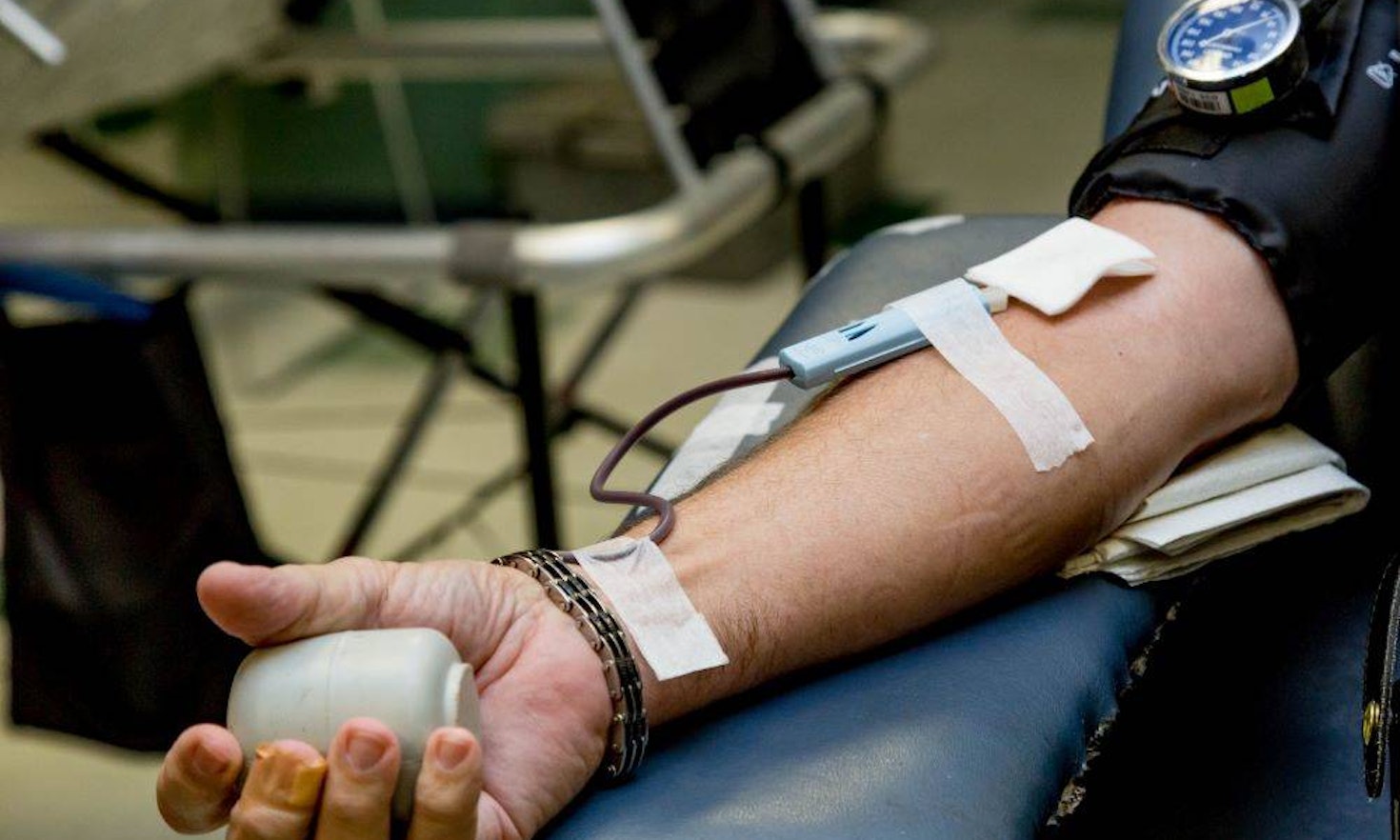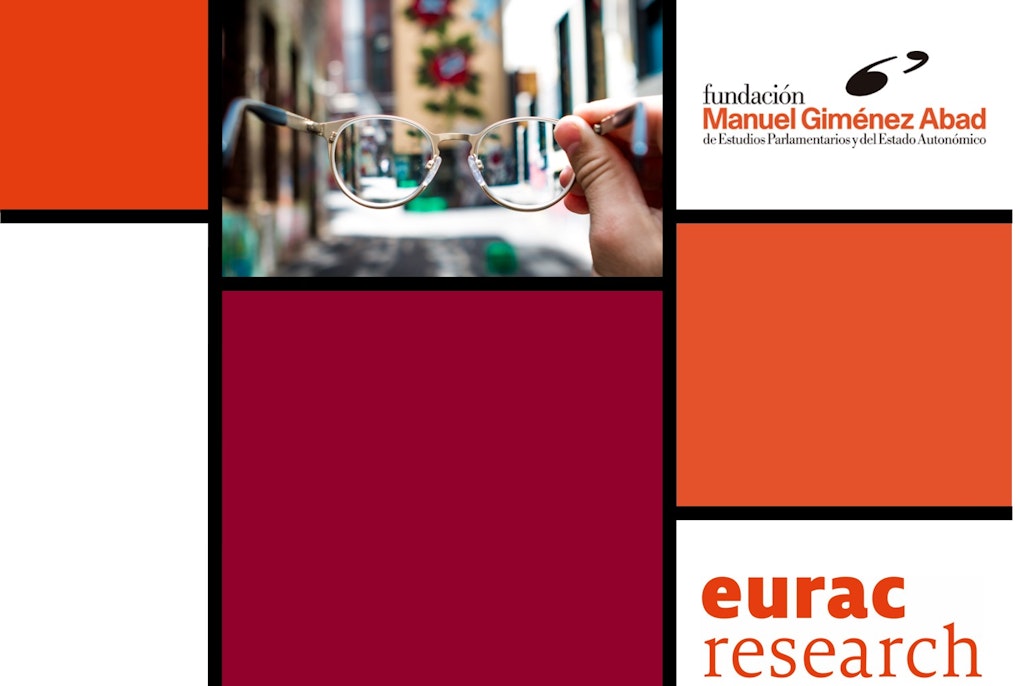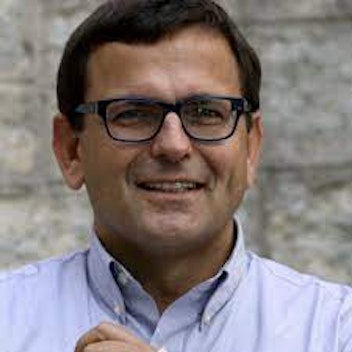
The “Green deal for a sustainable future”: 2021’s European Development Days
 Mariachiara Alberton
Mariachiara Alberton
Those who know me are very much aware of my two major features: selflessness and integrity. To put it in less poetic terms, I suffer from a severe form of RCS (Red Cross Syndrome) and I am powered by the moral law within me which causes me to be very generous but also an unbearable champion of justice.
This apparently redundant premise -that nobody asked for- is actually functional to the story I want to tell you. To be fair, it encloses the reasons why I have chosen to tell it in the first place.
When the fearfully anticipated new coronavirus COVID-19 made its appearance also in Europe, my sense of duty kicked in, and I felt the need to do something to help to face the pandemic. I am not medical personnel, I am not even a volunteer, I belong to the crowd of ordinary people who just needed to stay home, protect the NHS and save lives. Because of that, I chose the easiest option, and decided to give something of mine: to donate blood.
Donating blood is easy and painless, despite what many would think. It requires very little time and literally zero effort. It is a pure and selfless act of love: apart from some biscuits and tea and the smile of a nurse, the donor does not receive anything in exchange. Still, a donation can truly save lives, especially during a pandemic, where intensive care units are overcrowded, and blood donation days have been suspended.
Thus, I decided to do my part and go donate. I have been living in Northern Ireland for some months now, so between words and actions lay a long and intense internet search and never-ending calls in order to figure out where the closest transfusion centre was. Since I am a conscious donor, I scanned the web to find the conditions and the exclusion clauses, just to be sure to fit within the parameters. I am a donor in Italy, but I figured that there could be some differences.
While I was browsing the well-known requirements like age, weight and chronic diseases, I found out that there are indeed some differences. Big ones.
Looking at the paragraph on sexual behaviour, I was surprised to discover that there were no restrictions in the case of having changed your sexual partner within the previous four months (in Italy if you have had occasional sex or changed your partner, you must wait four months since the last sexual encounter before next giving blood). Or better, you should indeed observe a deferral of three months but only if you have accepted money or drugs in exchange of sex (or if you had a partner who did). I found this provision to be oddly specific. But the section that really made me shiver had yet to come:
Men who have sex with men (MSM)
In June 2016 the Northern Ireland Minister of Health announced an end to the lifetime deferral on blood donation by men who have had sex with men.
Currently, men who have sex with men in the last 12 months are deferred from donating blood for a period of 12 months.
Men who last had sexual contact with another man more than 12 months ago are able to give blood in Northern Ireland if they meet the other blood donor selection criteria.
In few words, the only exclusion clauses regarding sexual behaviour are prostitution and male homosexuality. Not only! It appears that homosexual males were even banned from donating blood until 2016. Only four years ago! Disappointed but not surprised, I remembered that same-sex marriage became legal only few months ago here in Northern Ireland – did you honestly expect anything different?
This whole thing upset me enormously although it also rang a bell. I wondered whether similar restrictions were also in place in other European countries, and if the EU had anything to say on the matter.
The results were quite depressing. In the United Kingdom, the life ban on blood donation for homosexual males was only reduced to a temporary exclusion of three months in November 2017[1]. This change will also come into effect here in Northern Ireland in June[2]. In France[3] from 2016 the one-year deferral has been reduced to 4 months, likewise in Denmark.
In Belgium, the Czech Republic, Estonia, Finland, Germany, Ireland, Malta, Portugal, Slovakia and Sweden there are still specific requirements that oblige homosexual and bisexual males to wait for one year after their last same sex encounter before they are allowed to donate blood. In Croatia and Slovenia, they are still banned. Conversely, Italy, Latvia, Poland and Spain are the only countries where there is an obligation to defer the donation in the case of “promiscuous”[4] or risky behaviour (such as occasional sex without using a condom), with no mention to the sexual orientation or the gender identity of the donor.
Such a dismal scenario! Even countries that I deemed more open and progressive on civil rights’ issues have turned out to be unexpectedly bigoted regarding blood donation. Yet blood is blood, it has no differences in colour or shape: if a person is healthy, it should be enough. All the other personal characteristics should not be relevant.
Eager for justice (now the preamble makes more sense), I turned myself to the European Union and started looking into the various Directives; I was hoping to find some explanation, some reference to Article 3 of the Treaty on European Union or to the Charter of Fundamental Rights. Sadly, I was disappointed.
The Union does regulate the subject of transfusion, especially with respect to donor traceability, safety, and control over quality. Already in 2002, Parliament had adopted guidelines, which were then made more specific by the Council in 2003. The current framework refers to the following Commission Directives:
https://eur-lex.europa.eu/legal-content/EN/TXT/?uri=CELEX:32004L0033
https://eur-lex.europa.eu/legal-content/EN/TXT/?uri=CELEX:32005L0061
http://eur-lex.europa.eu/legal-content/EN/TXT/?uri=CELEX:32005L0062
Indeed, the Annex to Directive 33 of 2004 contains a list of the minimum requirements for donors, but they are very general: there is mention to a deferral for potential donors who have had “risky behaviour”, no further specification. Hence, the Directive leaves the regulation to its member states[5].
Well, it seems that some member states are not quite inclusive. Or maybe they are just extremely slow to adjust to changes within society. And it was not until the COVID-19 pandemic, when a crowd of selfless people knocked on the door of transfusion centres -just like I did-, that the issue emerged so clearly. So much so that the contributors of Wikipedia decided to create page dedicated to homophobic restrictions on blood donations, which has been online since May 1st.
This blatant contradiction of the principle of non-discrimination, one of the most fundamental values of the Union, was highlighted in 2018 during a public consultation[6] of the European Commission with members of the interest groups, such as donors, volunteers and transfusion centre staff. In the summary of the consultation, the participants pointed out that some restrictions were outdated, and that the adoption of same-sex marriages and/or civil unions in almost all member states collided with the MSM deferral. The issue was also brought before the Commission in an interrogation by MEP Frances Fitzgerald. The answer plays around the statistics, since the 38% of HIV positive cases within the European Union contracted the virus from a homosexual relation. The Commission goes on saying that the MSM deferral is not a discrimination because it tackles a matter of public health[7]. It looked to me like Philadelphia in the late 1980s, and it was only November of last year.
So yes, this is discrimination. It a discriminatory prejudice based on two misconceptions: first, that homosexuals have more promiscuous behaviour, and second, that heterosexuals are more careful during sexual encounters. But can we really be sure that heterosexuals (or also bisexuals during relationships with members of the opposite sex) are so mindful about STD prevention? The incidences of STDs may be higher among gay men, but this does not mean that the rest of the population is immune to risk. Since we are talking about public health, wouldn’t it be better to put a cross-cutting barrier and prevent everyone, regardless of their orientation, from giving blood in cases of risky behaviour? In this way we would not exclude reliable donors who just happen to love people of the same sex; at the same time, we would decrease the risk of including cishet (cisgender heterosexual) subjects who might have been more “relaxed” with protections. Fair and safer for the blood recipients: win-win.
Indeed, last year, the Commission reviewed its strategy on the subject[8] and it came to the agreed conclusion that its action with regard to blood and organ donation and wasstill inadequate. Having acknowledged that, the Union has set the goal of working towards the harmonisation of the various Member States’ legislation; yet, in the Roadmap there is still no mention of the discrimination in the requirements for donors.
Scared to upset the more conservative countries, the Commission did not even mention the words “gay” or “homosexual” in its blood donation debate. In the meantime, most of the member states are facing a drought of the precious fluid in their blood banks.
Although, as often happens, the problem is much deeper. Once again, the national selfishness of member states (many of which are still much too far behind) pushes Europe in a downwards spiral of disregarded liberties. And the European citizens are the one who lose.
Sometimes, I trick myself into thinking that these barriers have been overcome. In my rainbow-coloured world, the new civil rights battles are more advanced, more refined: the time has come to move beyond the binary concept of gender; to understand that adoption is not a privilege for straight couples; to accept that transgender people should not be judged on the amount of surgeries they have undergone.
For my ideal world, where Stonewall is now just part of the collective memory, we need to fight against crawling, underhanded homophobia, the “I’m not an homophobic but…”, or the “I admire them, I respect them, I tolerate and understand them but then I hate when the kiss on the streets[9].
But then I remember that the real world is not so equal, and that sometimes the ones who disappoint you are the ones you would have least expected to. And sometimes not.
So naïve I am. With a heavy heart, I surrender to the fact that blatant homophobia still exists. That professional haters still exist, and they stand right next to those who claim that we have now achieved perfect equality –really, what are you still complaining about? You can even get married!
Without a doubt, we have made some incredible steps forward. Nevertheless, there is still a long way to go, facing the most unsuspected discriminations, especially in the places that should be the home of altruism and compassion. This is why we need to be vigilant and pay attention to all aspects of everyday life in all countries, because in truly free and equal societies there can´t be any grey areas.
*This article was first published in Italian on eurobull.it.
 | Cecilia Gialdini is a PhD candidate at Ulster University in Belfast, Northern Ireland. She is currently researching on Linguistic Justice, language policies and minority rights, but has a thing for federalism and environmental issues as well. She loves running (and she had to learn to do it even in the rain), tea with biscuits and cats. |
[1] NHS Give Blood website, “The rules on blood donation in England change on 28th November”, 28 November 2017, link: https://www.blood.co.uk/news-and-campaigns/news-and-statements/blood-donation-rules-have-changed/
[2] BBC News, “Northern Ireland blood donation rules relaxed for gay and bisexual men”, 29 April 2020 link: https://www.bbc.co.uk/news/uk-northern-ireland-52471308?intlink_from_url=
[3] France 24, “France to ease restrictions on blood donations from gay men”, 17 July 2019, link: https://www.france24.com/en/20190717-france-12-month-deferral-blood-donations-homosexual-gay-men-four-months
[4] The world “promiscuous” here has no moral implication butis intended in a neutral medical meaning. Behaviour is considered promiscuous if the donor has changed sexual partner in the last four months. This is the amount of time needed to ensure accurate results for STD testing.
[5] For more information, see the designated page: https://ec.europa.eu/health/blood_tissues_organs/blood_it
[6]European Commission, Directorate of Health and Food Safety, “Open Public Consultation for the Evaluation of the Blood, Tissues and Cells Legislation”, Brussels, 2018. https://ec.europa.eu/health/sites/health/files/blood_tissues_organs/docs/2018_consultation_evaluationbtc_report_en.pdf
[7] The interrogation and the response given by Mr Andriukaitis on behalf of the European Commission can be found here: https://www.europarl.europa.eu/doceo/document/E-9-2019-002809-ASW_EN.html
[8] For more information on the Commission’s assessment, see the Report: https://ec.europa.eu/health/sites/health/files/blood_tissues_organs/docs/swd_2019_375_summary_en.pdf and the Roadmap https://ec.europa.eu/smart-regulation/roadmaps/docs/plan_2016_154_evaluation_eu_legislation_on_blood_en.pdf
[9] Inspired by the original Italian lyrics of the song “Omofobia” (“Homophobia”) by Alfredo Marasti https://www.youtube.com/watch?v=z-3VTcuhaBQ
This content is licensed under a Creative Commons Attribution 4.0 International license.

 Mariachiara Alberton
Mariachiara Alberton
 Mario Kölling
Mario Kölling
 Lidia Bonifati - Lo Spiegone
Lidia Bonifati - Lo Spiegone